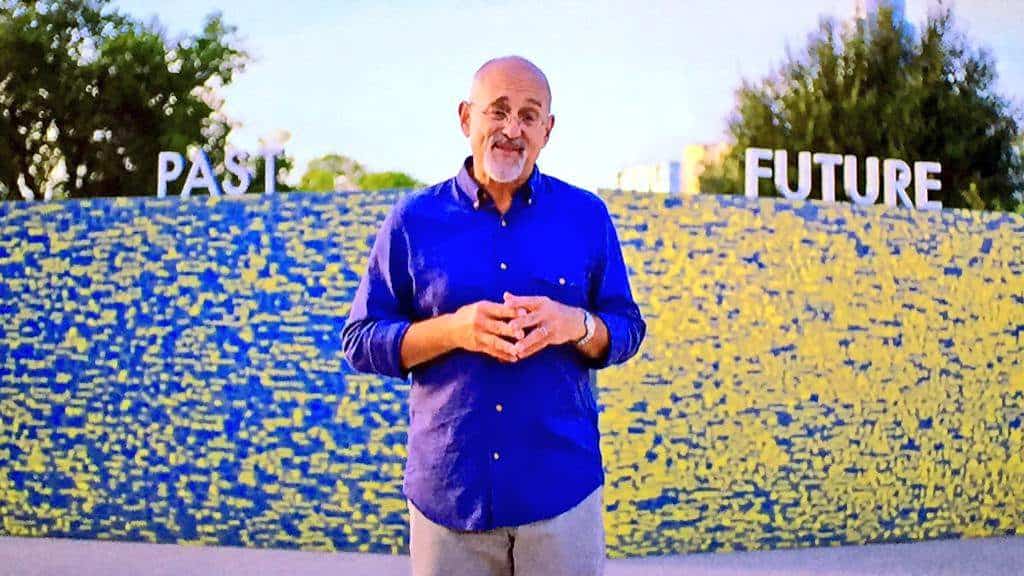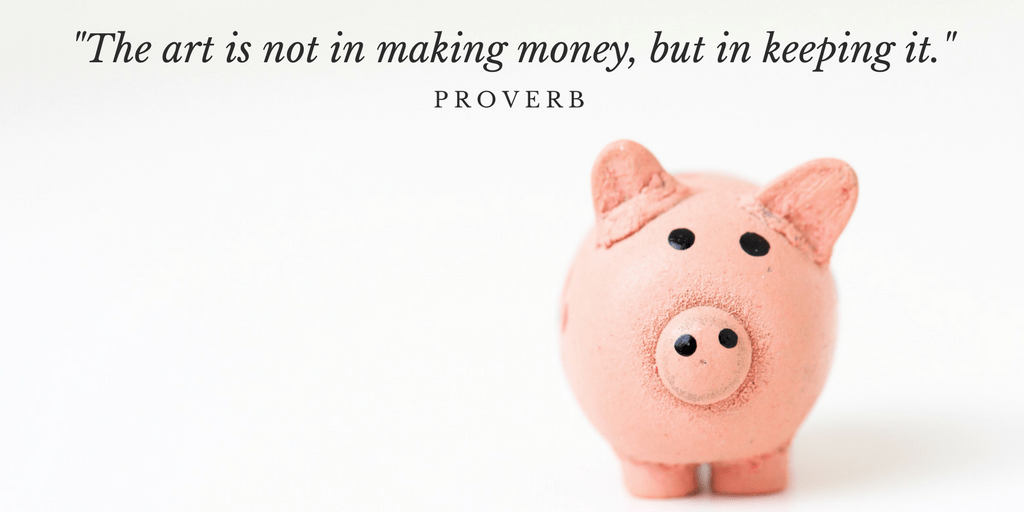I’ve always assumed every year that goes by will be better than the last. All my planning and goals show me an exciting future. I rarely think about things going off course.
I may get lucky and never run into a single rainy day, but I doubt it.
Research shows that people all tend to think the same way. We look back at our past and can count the good and bad experiences. Ask someone to look forward and their optimism gets the best of them.
Prudential did a great commercial on this. They asked people to put magnets on a board that showed the bad & good things that happened in their life. The blue represents bad and the yellow represents good. As you can see there is more blue in the past, but way more yellow in the future.

Rainy days and dreams
The future will be here before I know it and chances are there will be issues along the way.
One rule of thumb I always heard was to have 3-6 months of cash available for a rainy day. All sorts of things can happen. I could lose my job or a pipe could burst in the house and cause thousands of dollars of damage. Rather than get caught scrambling, it’s best to hope for the best and plan for the worst.
When I got my first full time job I decided to start investing in a retirement account. I was 21 and planning for the day I would be 65. I could have assumed that I would have plenty of money in the bank by the time I retire or I could start doing something about it.
Don’t make it a choice
Always pay yourself first.
I heard this a lot growing up. The concept is simple. After I get a paycheck money starts flying out of my bank account. I pay the mortgage, electric bill, car insurance, car payment and the list goes one. The money that’s left is then getting used for daily wants and needs.
Instead of hoping there will be money left to save at the end of this process, I start by paying myself. Money gets taken out of my paycheck and put into my retirement account before I ever see it. Once that money hits the bank, I have rules setup that takes a part of it and puts it into a savings account.
The money left over is what we live on. I make financial decisions on this amount, not my entire paycheck.
Save for what matters
Saving without a purpose never works well. I always want to have a clear vision for how the money will get used. Today, those buckets are education, retirement, health care, rainy days and family trips. Having a reason helps me combat impulsive choices to spend money on irrelevant wants.
Invest, don’t save
Most of the money I put away gets invested. When money sits in a bank, it doesn’t work for me. Investments grow and multiply. The downside of an investment is that it isn’t always accessible and there is some risk. But, over many years, most investments are going to increase.
Debt, another four letter word
There are all kinds of companies that want to give out money. These loans are not free and it ends up costing more, the longer it takes to pay it back.
When you owe money to someone else, it’s called debt. There is good debt and bad debt. My simple rule of thumb is that if I can make more investing my money than I can borrowing it, I will borrow.
For example, we have a loan on our house and on a car. These loans have low interest rates. In other words, the cost of borrowing the money is very small. Since I’m not using as much money to pay for these things, I can invest what’s left and let it grow.
The debt I always avoid is from credit cards. This is expensive money. The fees you pay to borrow money with a credit card are astronomical. For example, they are often 5-7X larger than what it costs to borrow money for a home.
The one nice thing about credit cards is that they don’t start charging fees until the end of the month. In other words, I can use them to pay for all sorts of things, and never pay a fee, as long as I pay it off at the end of the month.
This is exactly what I do for three reasons. First, I hate carrying cash. Second, I get rewards for using the card, things like airline miles or hotel points. I use these rewards to save money on trips, often getting flights and hotels for free. Third, it helps build my credit.
Credit Score is a grade that matters
Even after school, I’m still getting grades. The main one is a credit score. It tracks how responsible I am with my loans. When I pay off a credit card every month, it shows banks that I am safe to loan more money to.
If I miss too many payments or don’t pay a loan back, my score tanks. When that happens, it sends off alarm bells for banks. They see me as a risky person to lend money to. The only way to cover that risk is to charge me more to borrow.
Understanding money and finances is as important as math and reading. By developing good habits around money, it’s helped me provide for my family, live an amazing life and secure our future.
Remember, money is like a plant in a garden. Tend to it and it will grow and provide food for months. Ignore it and it will wither and die, leaving nothing in its place.
This post is part of a series of letters to my kids. My goal is to reflect on and capture as many life lessons as possible. Here is the current list I am working from.



